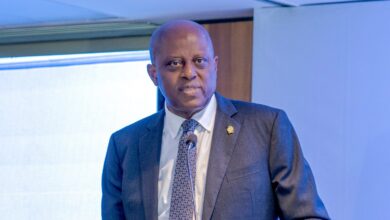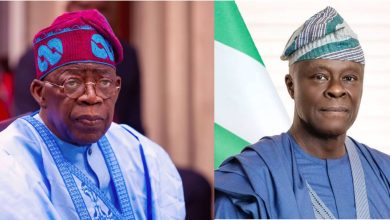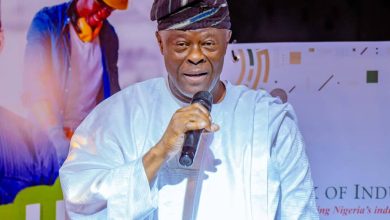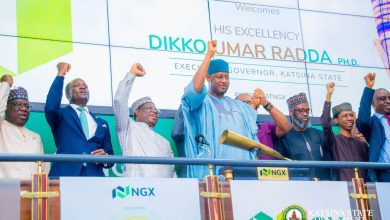Business
Harmonising Nigeria’s Fragmented Tax System
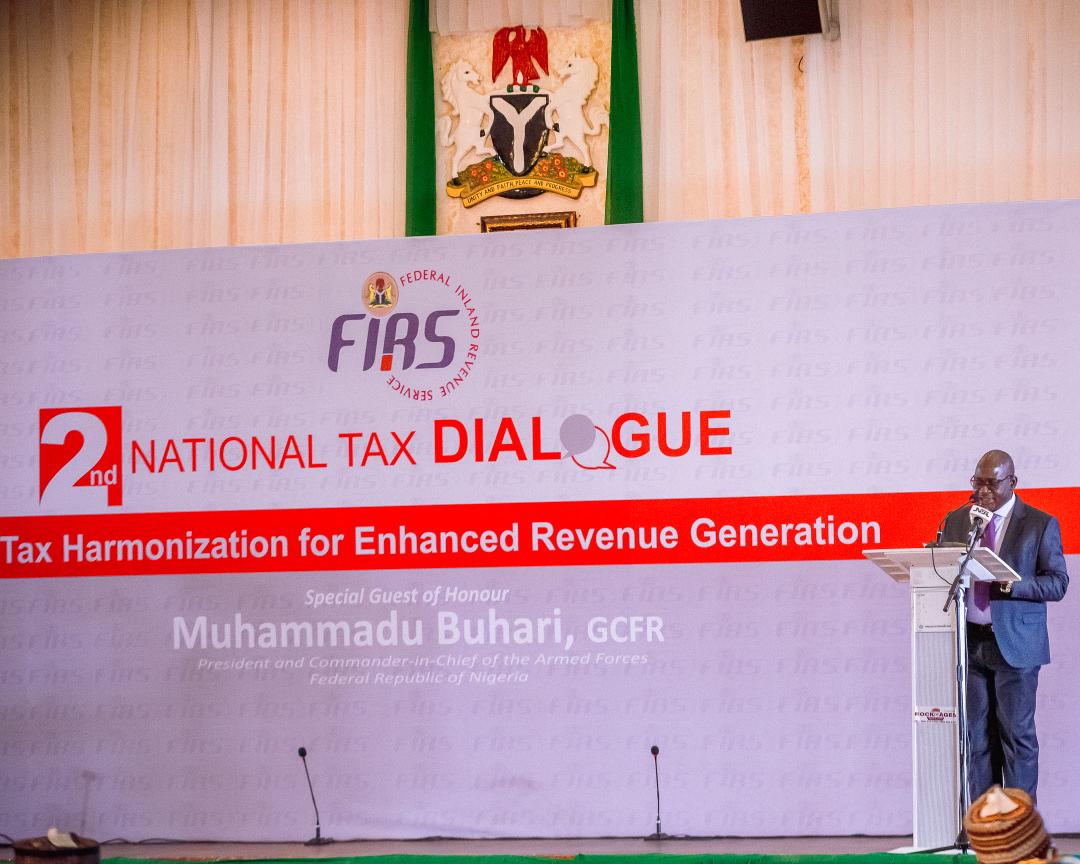
Mark Itsibor writes on the need for Nigeria to improve its revenue by harmonising the current tax systems
Nigeria has three tax revenue objectives: to develop our economy that does not lean too heavily on resource wealth; institutionalise a healthy tax culture among Nigerians; and create a participatory system of taxation whereby the taxpayers and other stakeholders understand and accept that they have equal stakes in the tax system.
But that set of objectives are now being defeated by the current multiple taxation system in the country. Evidence has shown that beyond negatively affecting the operations of companies, multiple tax system is also largely responsible for tax evasion across board, thereby denying government of the needed revenues.
However, minister of Finance, Budget and National Planning Zainab Ahmed believes that to achieve the stated objectives, “we must rethink the current fragmented tax system and harmonise same. The tax policy, legislation and administrative practices at all levels must function as one indivisible whole.” She is right. A harmonised taxpayer registration will ensure that no taxpayer can hide from the relevant tax authority.
That explains why the federal government recently held the 2nd annual National Tax Dialogue themed “Tax Harmonisation for Enhanced Revenue Generation.” The national tax dialogue was designed to engage stakeholders in the Nigerian tax-space in meaningful discourse so as to glean information, ideas and experience in the aid of policy formulation and improved tax environment. The immediate goal is to optimise tax revenue collection through efficient administrative practices that guarantees ease of doing business.
President Buhari had directed all government agencies to enable FIRS connect to their ICT systems, a pronouncement that softened the grounds for the service to roll-out its system. FIRS chairman is confident that by the time all the agencies achieve 100 per cent compliance with the President’s directive, Nigeria would be the envy of other countries for tax compliance and domestic tax revenue mobilisation.
The revenue profile of the country in 2021 has clearly shown that its continued survival as a nation depends on tax revenue. Official data shows that tax revenue contributed by the Federal Inland Revenue Service (FIRS) from March 2022 Federal Account Allocation Committee (FAAC) meeting is N513.522 billion (63.94 per cent).
Arising from the national dialogue recently, there was a general agreement by stakeholders at the event on how to ensure that the nation’s tax system becomes mutually beneficial for the taxpayer, government and indeed, all Nigerian. The resolve of the stakeholders that throng the event, which took place at the presidential villa in Abuja include that, taxation, being a sovereign tool for perpetuating organised society, peace, development and growth, must not be politicised. Tax authorities should not be distracted by politically motivated actions; instead, they should be supported by everyone to enable them to function efficiently and maximise the revenue potentials of the tax system.
The stakeholders held that any discontent by some subnational governments with the current revenue distribution framework should be addressed without any political colouration. The Federation Accounts Allocation Committee (FAAC), National Economic Council (NEC) and National Assembly should come up with an amicable resolution without delay.
The communique that was issued at the end of the meeting also stipulated that governments, at all levels, must grow tax revenue without necessarily raising new taxes considering the volatility of revenue from commodities.
Available data indicates that countries with smaller economy and tax base than Nigeria are faring much better in terms of tax revenue collection, and the ratio of tax-to-GDP because they have streamlined their tax system. Hence, tax policy, legislation and administrative practices, at all levels, must be harmonised into one indivisible whole starting with a harmonised national taxpayer registration system.
A fragmented tax system i.e. one which is characterised by multiple or overlapping taxes or duplicated tax administrations, is inefficient and compromises tax revenue generation. Similarly, the multiplicity of tax administration is as undesirable as the multiplicity of taxes; either case creates uncertainty and instability in the economy. Therefore, governments at all levels should harmonise all revenuegenerating functions into a single platform under the administration of only one revenue authority of each government.
Modern and efficient tax administration needs data – particularly, big data. Nigerian tax authorities must use data to track all economic activities and identify all taxable persons. Government should create relevant policy and statutory framework for a centralised data sourcing, warehousing, analysis and retrieval system that every tax authority can plug into.
The last time government commissioned a study of the tax system was about two decades ago whereas, the social-economic environment had changed severally and materially during the same period. The communique highlighted that government should commission a study group to review the entire tax scape including: a review of available resolutions, reports, communiques, etc. of various tax conferences, workshops, symposia, etc.; identifying key resolutions and recommendations; identification of measures, practices, policies and laws that are capable of inhibiting business, investments and growth of the Nigerian economy, for recommended changes, deletion or repeal; and carrying out a study of modern tax practices, policies, laws, etc. of relevant countries with a view to instituting similar ones in Nigeria; and 4. providing a roadmap for harmonisation of the Nigerian tax system.
“The impending general election is an opportunity for intending political office holders to showcase their tax agenda. Independent National Electoral Commission (INEC), Economic and Financial Crimes Commission (EFCC), Independent Corrupt Practices and other Related Offences Commission (ICPC) and all other relevant agencies should work with the relevant tax authority in screening candidates to ensure tax compliance as part of eligibility for public office. Any individual who is not tax compliant should not be trusted with the resources of the people,” the communique read.
Two principal factors militating against voluntary tax compliance are ineffective communication and trust deficit. Tax authorities should develop effective tax communications strategies while governments at all levels must ensure that taxpayers receive value for taxes paid.
President Muhammadu Buhari could not agree more with the fact that the current tax system is characterised by fragmented administration, and multiple (and sometimes, overlapping) taxes. He also pointed to the fact that most tax-efficient nations, tax administrative processes and practices are harmonised within a single system.
For the President, one key deliverable of this year’s tax dialogue is to promote synergy in tax administration among the different tiers of government. “Harmonising taxpayer identification across the country is a good start; but we must do more to promote ease of doing business (including ease of tax compliance) in Nigeria.
“On our part, we have started by clarifying in the 2021 Finance Act that FIRS is the sole authority to administer tax for the federal government. This clarification became necessary in order to avoid taxpayers being burdened with multiple tax compliance obligations towards different agencies of the same government. Multiplicity of tax administration is as undesirable as multiplicity of taxes; it creates uncertainty and instability; and above all, it is inefficient.”
President Buhari is not unaware that good intentions alone are not enough as they simply cannot pay for infrastructure, security or social amenities. That’s why he’s insisting that Nigeria must the improve tax revenue without necessarily raising new taxes. “Revenue from commodities, including crude oil, are too volatile and unreliable,” he said, while pledging government’s support for any viable initiative for improving tax revenue that should emanate from this dialogue.
In the eyes of Federal Inland Revenue Service chairman, Mohamma Nami, the dialogue is imperative in view of the fact that despite the nation’s 38 tax authorities, several tax laws and numerous taxes or levies, majority of the taxpaying public still remain outside the tax net. According to him, the tax-dodgers found it convenient to meander among the competing revenue agencies escaping their tax obligations. “The result is suboptimal revenue generation at all tiers of government,” he said.
Minister of Finance, Budget and National Planning knows what can be done to get it right. In her remarks at the national dialogue, Mrs Ahmed stated that “We have the option of optimising domestic revenue by instituting suitable and efficient tax system that serves governments at all levels. This is the story in major economies of the world.
“We certainly can make do with ideas that will help us to institute harmonised tax systems for all,” the finance minister said. Ahmed sees the national tax dialogue as a move to kick-start the discussion for the harmonisation of the fragmented tax systems into a coherent whole for improved tax revenue collection for all the governments in the Federation.
Nigeria surely needs a harmonization of its tax laws for better result, especially for revenue generation to government.
Culled from the Leadership Newspaper (30th June, 2022)

